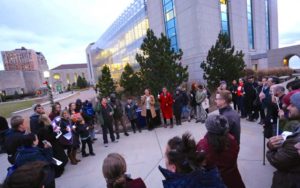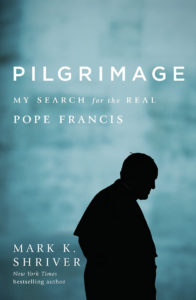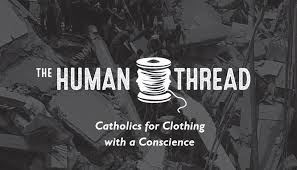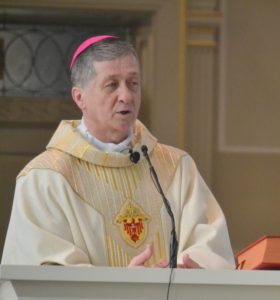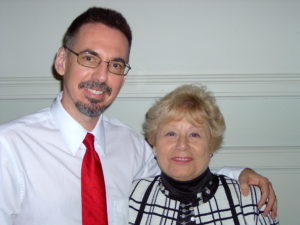The Working Catholic by Bill Droel
“Your sad story doesn’t obligate me or anybody else to pay for somebody else’s health care,” says a former Congressman from Illinois. He has apparently forgotten the definition of insurance (a hedge or cushion against risk), which is normally achieved by spreading the cost of a problem (a car accident, a fire, a surgery) among a more-or-less random pool of people. More importantly, this former legislator (now a radio commentator) and many others like him have forgotten an crucial part of moral philosophy.
Our United States culture prizes liberty. It is marvel the way our country’s founders and its citizens to this day have woven liberty into our laws, our civic affairs, our business practices, our expressions of faith and more. This is something new in the long history of civilization. We correctly invoke the virtue of liberty or freedom at sports events, in schools, in discussions of military deployment, in TV commercials, in policy debates and more. Frequently, however, we forget that liberty is a social virtue and that it is part of a constellation of other virtues. Instead, we too often equate liberty with ragged individualism.
Individualism is now the default position of our culture. It says that goodness is achieved when at the end of the day (or the end of the financial quarter or fiscal year) the greatest number of people gets the best results possible. The mechanism is individual choice. The maximum number of choices, says individualism, will somehow yield maximum benefits—though not for all people, but for the most people. This is a philosophy for lazy thinkers. It reduces liberty or freedom to choices or options. Should we install a dish or connect with cable? Should we marry or simply live together? Should we help one another with health insurance or allocate for our own family exclusively?
Individual liberty is an achievement, but individualism, particularly as currently presented by some ideologues in our society, is destructive. Yes to communitarian individuals; no to extreme individualism.
The principle of the common good recognizes that many important things cannot be obtained by individuals. Many good things can only be obtained in common: public safety, effective fire-fighting in urban areas, roads and airports, libraries (including all cyber-research), clean water and access to health care. No matter how wealthy the former Congressman might be, he cannot have all these good things unless he cooperates. In fact, many people never use an airport but their taxes subsidize the airport that the Congressman uses. Many never go to college, but taxpayers underwrote his education. His tuition did not fully cover the costs of running those schools.
The common good, which was always part of the United States experiment in democracy, complements the so-called free market and in fact it makes the market better. The common good is not reducible to the sum total of individual choices. It imposes considerations on those who are expressing an opinion and acting on a calculated choice. If we forget about the common good, we sooner or later lose society.
Of course, the common good does not give wholesale endorsement to the Affordable Care Act. It does not endorse Trump/Ryan Care. Reasonable citizens can reasonably differ about the delivery of health care. In fact, the common good does not even necessitate a health insurance system. Theoretically, normal health care (the requirement of the common good principle) could be inexpensively available to all if pharmaceutical executives, doctors, hospital administrators and others were paid the same wage as their patients.
The former Illinois Congressman, who lists himself as a Catholic, puts the matter of health care delivery under the virtue of compassion. “It is compassion for me to voluntarily help someone else,” he says. It is not a virtue for the government “to forcibly take the money I make.”
Here again, he and many others don’t realize that compassion or love is a commandment or a requirement. It is not merely optional. Likewise, he forgets to put compassion into the constellation of social virtues. For example, distributive justice is the virtue that obligates an authority, like the government, to allocate resources so that all have the common goods.
Extreme individualism is bad for our culture, bad for business, bad for United States image abroad and bad for legitimate debate about government meddling in health care, about tax incentives for domestic job creation, about improvements in education outcomes, about women’s reproductive health, about enforcing the civil rights of gays and lesbians, about reform inside civil service unions, about extraction and use of domestic natural resources. Extreme libertarians on the right and on the left are hurting our society.
From its earliest days, visitors to our country have been impressed with our teamwork, our sense of community, our voluntary associations, our inclusiveness and our collective dedication to the common good. We prosper and pursue our happiness to the extent that we pull together and that we refute mindless comments about “my own health care.”
Droel edits INITIATIVES (PO Box 291102, Chicago, IL 60629), a print newsletter about faith and work.
 In the wake of a headline-making scuffle between legislators, the whole nation has learned about “SB4,” the Texas legislation targeting “sanctuary cities.” But the Texas Catholic Conference and the Texas AFL-CIO have been fighting the proposal for months. SB4 would prohibit “sanctuary” policies adopted by police departments in cities across the Lone Star State to win trust and cooperation in immigrant communities. They assured even the undocumented that the police were there to fight crime, not enforce federal immigration laws.
In the wake of a headline-making scuffle between legislators, the whole nation has learned about “SB4,” the Texas legislation targeting “sanctuary cities.” But the Texas Catholic Conference and the Texas AFL-CIO have been fighting the proposal for months. SB4 would prohibit “sanctuary” policies adopted by police departments in cities across the Lone Star State to win trust and cooperation in immigrant communities. They assured even the undocumented that the police were there to fight crime, not enforce federal immigration laws.
